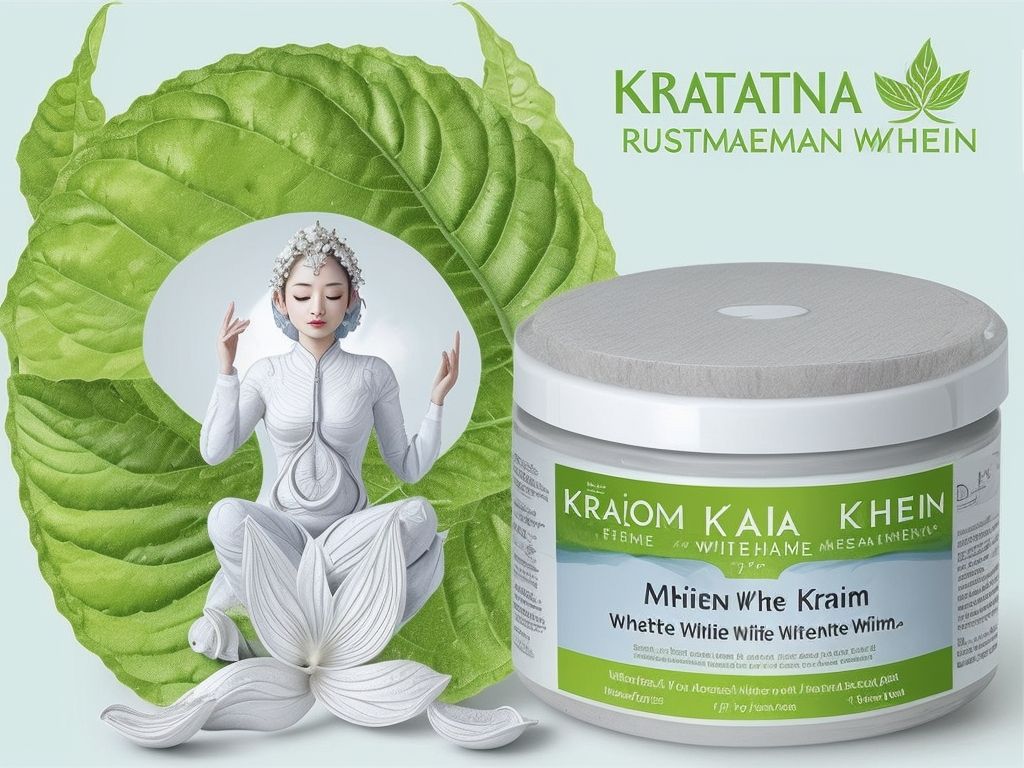States Where Kratom is Illegal: Understanding the Legal Status and Restrictions
Kratom, a controversial herbal supplement, is restricted in some states. Knowing which states have outlawed it is significant for people interested in this substance. We’ll look into the states where kratom is illegal and understand the implications of such laws. Furthermore, we’ll provide info for those seeking alternatives in these regions.
Let’s investigate the forbidden states. In the US, many states have banned kratom because of its dangers and addictive qualities. The states are: Alabama, Arkansas, Indiana, Rhode Island, Vermont, and Wisconsin. It’s significant to realize that each state may have different laws. So, ensure you check local regulations before using or possessing kratom products.
Besides these states, other places have applied less harsh measures to reduce kratom’s availability. For example, some cities and counties in California, Florida, Georgia, Mississippi, and New York have prohibited kratom. These local restrictions can make it hard for people to get safe sources of the supplement or explore its benefits.
It’s vital to be aware of the kratom restriction in affected areas. However, it’s also essential to think of alternatives in these places. Research natural remedies or speak to healthcare professionals for substitutes or complementary treatments. By having a holistic approach and using scientific resources shrewdly, people can manage through these limits while caring for their health.
Pro Tip: Being aware of kratom laws in your area allows you to make wise decisions about its use without breaking local regulations and risking your health.
Background on Kratom
Kratom, a tropical plant from Southeast Asia, has been gaining attention for its potential medicinal uses. It’s derived from leaves of the Mitragyna speciosa tree and is well-known for pain relief, energy boost, and mood regulation.
The use of kratom has sparked debates due to its similarities to opioids and potential for abuse. People are arguing if it has medical value or if it is dangerous and addictive. Regulations concerning kratom vary across the US.
In states such as Alabama, Arkansas, Indiana, Rhode Island, Vermont, and Wisconsin, kratom is illegal and classified as a controlled substance. This is because of adverse effects and lack of scientific evidence.
In other states, it remains legal with restrictions. In Florida and Georgia, you can buy it legally if you are 18 and older. In Oregon and Colorado, you must be 21+.
Kratom’s legality depends on ongoing research and public discourse. People are arguing if it is a less harmful alternative to prescription opioids or if it is dangerous and addictive.
Current Legal Status of Kratom
To understand the current legal status of kratom, delve into the section focusing on “States Where Kratom is Illegal.” This sub-section explores the specific regions where the use and possession of kratom are prohibited, shedding light on the regulatory landscape surrounding this herbal supplement.
States Where Kratom is Illegal
Kratom, a debatable herbal supplement, is outlawed in specific states in the USA. States have made laws controlling the selling, possessing, and using of kratom due to worries about its safety and potential misuse.
For a concise understanding of the states where kratom is illegal, here’s a table:
| State | Kratom Legal Status |
|---|---|
| Alabama | Illegal |
| Arkansas | Illegal |
| Indiana | Illegal |
| Rhode Island | Illegal |
| Vermont | Illegal |
| Wisconsin | Illegal |
Now that we’ve gone over the basics, let’s look at some unique aspects of kratom’s legality. It’s worth noting that several states have pending legislation or are examining bills related to kratom regulation. Thus, it is vital to stay informed on any changes in your state concerning kratom’s legal status.
Given the lawful complexities surrounding kratom, it is essential to follow the existing regulations if you live in a state where it is illegal. One idea would be to talk to local legislators to communicate your support for comprehensive research on kratom’s potential advantages and risks. This could help raise awareness about this natural product among policymakers.
Another approach would be to research substitute options for handling health conditions that may get people to look for kratom as an alternative remedy. By consulting healthcare professionals and studying evidence-based treatment alternatives, individuals can make educated decisions regarding their wellness while making sure they follow local laws.
State 1
As laws about kratom transform, it’s important to be aware of its legal status in State 1. Here’s a guide to comprehend the law:
- Research – Dig into State 1’s laws and rules for kratom.
- Legislation – Learn any existing legislation about kratom in State 1.
- Jurisdiction – Find out which government bodies control kratom in State 1.
- Recent Changes – Track the recent changes for the legal status of kratom in State 1.
- Retail Restrictions – Be aware of any limits on selling or buying kratom products in State 1.
- Legal Advice – Consult a legal expert to make sure you follow the applicable laws for kratom in State 1.
Note that details may differ based on local ordinances and updates from the authorities. It’s important to stay informed on the unique elements of kratom’s legal landscape in State 1.
We can look back in history to find out how the legal status of kratom has changed. We can see how opponents and advocates have faced battles and successes. Knowing this history can help us understand how different factors led to the current legal framework for kratom.
State 2
Kratom’s legal status varies in different states. Here’s a table for a quick overview:
| State | Legal Status |
|---|---|
| Alabama | Schedule I Controlled Substance |
| Arkansas | Schedule I Controlled Substance |
| California | Not Scheduled, but banned in San Diego City |
| Colorado | Not Regulated |
| Florida | Not Scheduled, but banned in Sarasota County |
| Illinois | Not Regulated, but banned in Jerseyville and Alton City |
| Indiana | Schedule I Controlled Substance |
| New York | Not Regulated, but banned in Franklin County |
Remember, Kratom laws are constantly changing. So, check local laws before you buy or use Kratom.
Once upon a time, Kratom had no restrictions in the US. But, health risks raised concerns. So, more states have tightened regulations or even banned it.
Therefore, stay informed of Kratom’s legal status in your state. It’s important to be up-to-date to ensure responsible use of this herb.
State 3
Kratom’s legal status varies by state. Knowing the rules for this natural product is essential for users and sellers alike.
Here’s a summary of the legal status in different states:
- Alabama: Illegal
- Alaska: Legal, but regulated
- Arizona: Legal
- Arkansas: Illegal
- California: Legal
- Colorado: Legal, but regulated
- Connecticut: Legal
- Delaware: Legal
- Florida: Legal, but regulated
- Georgia: Legal
Some states have forbidden kratom, while others have taken a milder stance by controlling its sale and usage. It’s important to be aware of the laws in your state.
To abide by legal requirements, sellers should put in age limits and proper labeling. Teaching customers about responsible use can help establish a good image for kratom within the community.
Always do your research and talk to legal experts for correct information about the legal status of kratom in your state. By staying informed and taking the necessary precautions, we can handle the tricky terrain of this botanical substance responsibly and legally.
Reasons for Kratom’s Legal Status
The legality of kratom differs in different states. Reasons why it’s banned in certain areas vary.
One is the lack of regulation and standardization in its production and sale. This could result in contaminated or falsified products entering people’s hands and posing potential health threats.
Another reason is the possibility of misuse and addiction. Kratom has similar effects to opioids and can be habit-forming. Dependence, withdrawal symptoms, and mental health issues may arise.
Studies also point to it having adverse effects on liver function. More research is needed for confirmation, but this has caused worry among lawmakers and led to bans.
To address these matters, several solutions are proposed. One is to form strict regulations and quality control procedures. This would involve regular testing for contaminants and labeling products with contents and dosage info.
Also, providing education and awareness programs can help users make responsible choices. People should know the risks, proper dosage, and seek professional medical advice beforehand.
Despite the varying legal status of kratom, regulating it and educating people can help create a balance between allowing access to those who benefit from its use and protecting public health.
Controversies Surrounding Kratom
Kratom, a hotly debated herbal supplement, has sparked numerous debates about its use, legal status, and effects on people. Let’s have a look at three important aspects:
- Health Matters: Critics claim it can trigger adverse health outcomes, such as liver harm and addiction. But, these claims don’t have solid scientific evidence and are still argued about.
- Possible Advantages: Proponents argue that kratom can offer pain relief, improved spirits, and increased energy. Some use it as an option to pharmaceuticals or illicit drugs. But, more research is required to understand its advantages.
- Regulatory Challenges: Kratom’s legal status differs across states in the US. While some states have banned its sale and possession out of concerns for safety, others allow it but with certain restrictions.
Despite the ongoing debates on kratom, it has intriguing details. Studies suggest its active ingredients can interact with opioid receptors in the brain, potentially offering other choices for those dealing with opioid addiction or chronic pain management.
One such story is of Sarah Walker*, who used kratom to treat her fibromyalgia-caused pain. After trying multiple treatments with limited success and side effects from meds, she turned to kratom as a last attempt. Despite her initial doubts and criticism from medical professionals, she found relief in small doses of kratom without any major ill effects or addiction.
*Name changed for privacy.
Potential Benefits of Kratom
Kratom, an herb from Southeast Asia, is gaining attention due to its potential benefits. It relieves chronic pain and boosts mood, becoming an alternative to pharmaceutical drugs.
- Pain relief: Many people have noted a decrease in pain levels after consuming Kratom. Its alkaloids bind to opioid receptors in the brain, thus providing relief.
- Mood and energy boost: Kratom has stimulating effects that heighten focus and productivity. It also lifts mood and provides an energy boost without the jitters that caffeine or other stimulants give.
- Relaxation and stress reduction: Kratom is known for its calming properties. It provides a sense of tranquility and relaxation, which helps those with anxiety or stress-related issues.
- Opioid withdrawal support: Kratom has been used to alleviate withdrawal symptoms in those recovering from opioid addiction. Its ability to target opioid receptors without causing dependence makes it a valuable option.
Additionally, kratom has antioxidant properties that could help overall health. However, individual experiences may differ and more research is necessary to understand its benefits.
Interestingly, kratom has been used in Southeast Asia for centuries as a traditional medicine. People chewed or brewed its leaves into teas to take advantage of its potential benefits, long before its current popularity in Western countries.
Conclusion
The legality of kratom differs by state in the U.S. Some states have made it forbidden to possess, sell, or use kratom, while others have decriminalized or regulated it. It is essential to be aware of the laws in your specific state before using kratom.
To sum up, some states allow kratom and others have banned it. In states where kratom is illegal, people caught with it or selling it might face legal consequences. It’s important to understand and obey the laws in your area.
Furthermore, it’s smart to research and keep up with the newest kratom legislation news. Laws can change as policymakers review and reconsider their views on this plant. Being aware of the updates will help you make informed decisions about your health.
Frequently Asked Questions
1. Is kratom illegal in all states in the United States?
No, kratom is not illegal in all states in the United States. While some states have banned the sale and possession of kratom, there are several states where it remains legal.
2. Which states have made kratom illegal?
The states where kratom is currently illegal include Alabama, Arkansas, Indiana, Rhode Island, Vermont, and Wisconsin.
3. Can I still purchase kratom online if it’s illegal in my state?
Even if kratom is illegal in your state, it may still be possible to purchase it online. However, be sure to check the specific laws of your state and the online retailer’s policies before making a purchase.
4. What are the legal consequences of possessing kratom in a state where it’s illegal?
The legal consequences for possessing kratom in a state where it is illegal can vary. It is important to consult with a legal professional or research the specific laws in your state to understand the potential penalties.
5. Why have some states decided to ban kratom?
States that have decided to ban kratom often cite concerns about its potential health risks and addictive properties. However, the scientific community is still studying kratom to better understand its effects.
6. Are there any efforts to legalize kratom in states where it is currently illegal?
There have been efforts to legalize kratom in some states where it is currently illegal. Advocacy groups and individuals continue to work towards educating lawmakers about the potential benefits and responsible use of kratom.




Leave a Reply
Want to join the discussion?Feel free to contribute!